
Jeffrey S. Weber, MD, PhD, inductee of the 2016 Giants of Cancer Care award in Melanoma, has died.

Your AI-Trained Oncology Knowledge Connection!


Jeffrey S. Weber, MD, PhD, inductee of the 2016 Giants of Cancer Care award in Melanoma, has died.

Joshua K. Sabari, MD, discusses barriers to biomarker testing in patients with non–small cell lung cancer.

Bhavana Pothuri, MD, discusses real-world treatment patterns and outcomes in patients with advanced endometrial cancer according to MMR/MSI status.

Michelle Krogsgaard, PhD, discusses the identification and potentially utility of phosphorylated neoantigen targets for anticancer vaccine development.

Marc J. Braunstein, MD, PhD, FACP, of NYU Grossman Long Island School of Medicine, discusses lessons learned with program building and medical education with hematologic cancers.

Joshua K. Sabari, MD, discusses the FDA approval of frontline amivantamab plus chemotherapy for NSCLC harboring EGFR exon 20 insertion mutations.

First-line niraparib maintenance was not associated with worsened health-related quality of life outcomes vs placebo in advanced ovarian cancer.
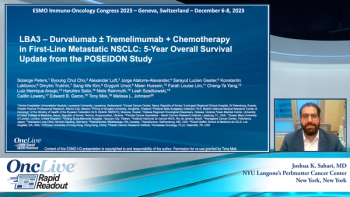
Joshua K. Sabari, MD, reviews data from the 5-year overall survival update from the POSEIDON study investigating durvalumab, tremelimumab, and chemotherapy in first-line metastatic non–small cell lung cancer.
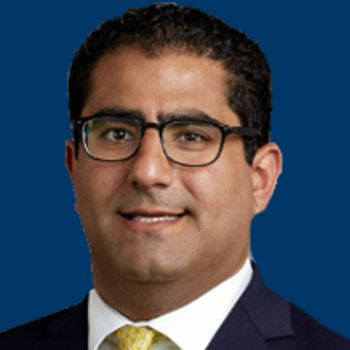
Joshua K. Sabari, MD, discusses updates in ADCs in NSCLC.
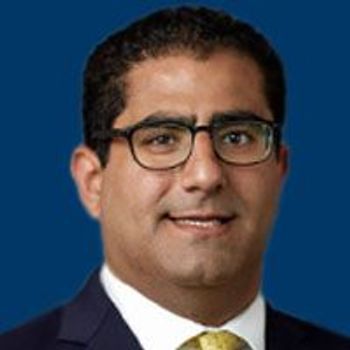
Joshua K. Sabari, MD, explains the utility of ADCs in patients with NSCLC and their benefit in patients with EGFR-, ALK-, or HER2-mutant disease.

Joshua K. Sabari, MD, discusses the investigation of patritumab deruxtecan in EGFR-mutant non–small cell lung cancer.

Jeffrey S. Weber, MD, PhD, discusses the background for the KEYNOTE-942 trial, which was conducted in resected high-risk melanoma.

Nina D'Abreo, MD, discusses the importance of considering a patient’s medical history and preferences when deciding on a treatment course in HER2-positive breast cancer and highlights the important role of surgeons within breast cancer treatment.

David R. Wise, MD, PhD, discusses progress made in the treatment of patients with metastatic castration-resistant prostate cancer.

Nina D'Abreo, MD, discusses the evolution of antibody-drug conjugates in the treatment of patients with HER2-low or HER2-positive breast cancer.

Jeffrey S. Weber, MD, PhD, expands on the potential utility of longitudinal ctDNA dynamics as a kinetic marker for clinical outcomes in melanoma.
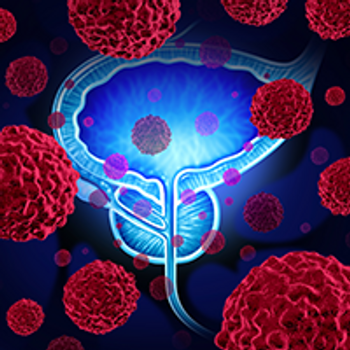
Joshua Hurwitz, MD, shares how multifocal MRI-directed SIB plus SBRT was not linked with added toxicity vs unifocal SIB in patients with prostate cancer.
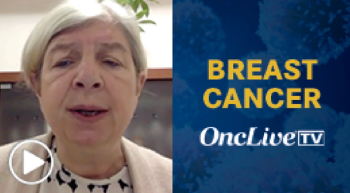
Yelena Novik, MD, discusses advancements and emerging trends that have been seen in the treatment of patients with advanced estrogen-receptor–positive breast cancer, citing clinical trials that have helped push the treatment armamentarium forward.
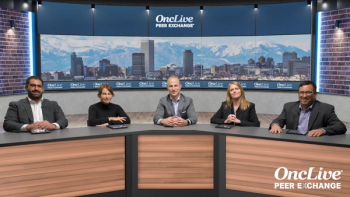
The expert panel closes its discussion with advice for community physicians and discusses the future treatment landscape for advanced non–small cell lung cancer.

The panel discusses the use of antibody-drug conjugates for patients with EGFR-mutant non–small cell lung cancer, with a focus on the HERTHENA-Lung01 and TROPION-Lung05 studies.

A panel of experts on non–small cell lung cancer provide their thoughts MARIPOSA-2, which studied amivantamab and chemotherapy in EGFR-mutant NSCLC in the second line and beyond.
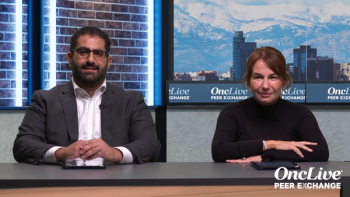
Joshua K. Sabari, MD, reviews data from the MARIPOSA-2 trial and discusses treatment options in the second line and beyond for patients with EGFR-mutant non–small cell lung cancer.

The panel reacts to the MARIPOSA trial, which looked at amivantamab and lazertinib in the front line in patients with EGFR-mutant non–small cell lung cancer.
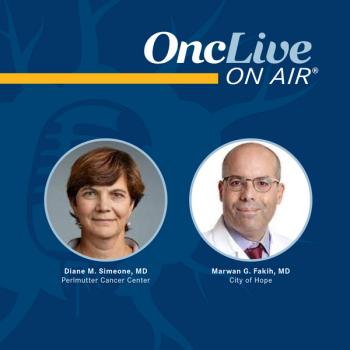
Drs Simeone and Fakih discuss the main objective and design of the observational BASECAMP-1 study and how it functions alongside the EVEREST-1 study, which is evaluating the autologous CAR T-cell therapy A2B530 in patients with CEA-expressing solid tumors that have lost HLA-A*02 expression.

Comprehensive insights on FLAURA2, which looked at osimertinib and chemotherapy in the front line for patients with EGFR-mutant NSCLC.

A panel of thoracic medical oncologists discuss the first-line treatment options for patients with EGFR-mutant advanced non–small cell lung cancer.

Expert perspectives on the role of clinical biomarkers in selecting appropriate patients for antibody-drug conjugates in non–small cell lung cancer.

Joshua K. Sabari, MD, reviews data from the TROPION-Lung04 study, and the panel offers key takeaways on Dato-DXd and immunotherapy in advanced NSCLC.

Experts Ritu Salani, MD, MBA, and Bhavana Pothuri, MD, explore the significance of enrolling diverse patients in clinical trials and the pivotal role of community settings in advancing endometrial cancer research and treatment.

Delve into the exciting developments in endometrial cancer treatment, including HER2 antibody drug conjugates, checkpoint inhibitors, and the promising impact of these therapies in the quest to reduce chemotherapy use.